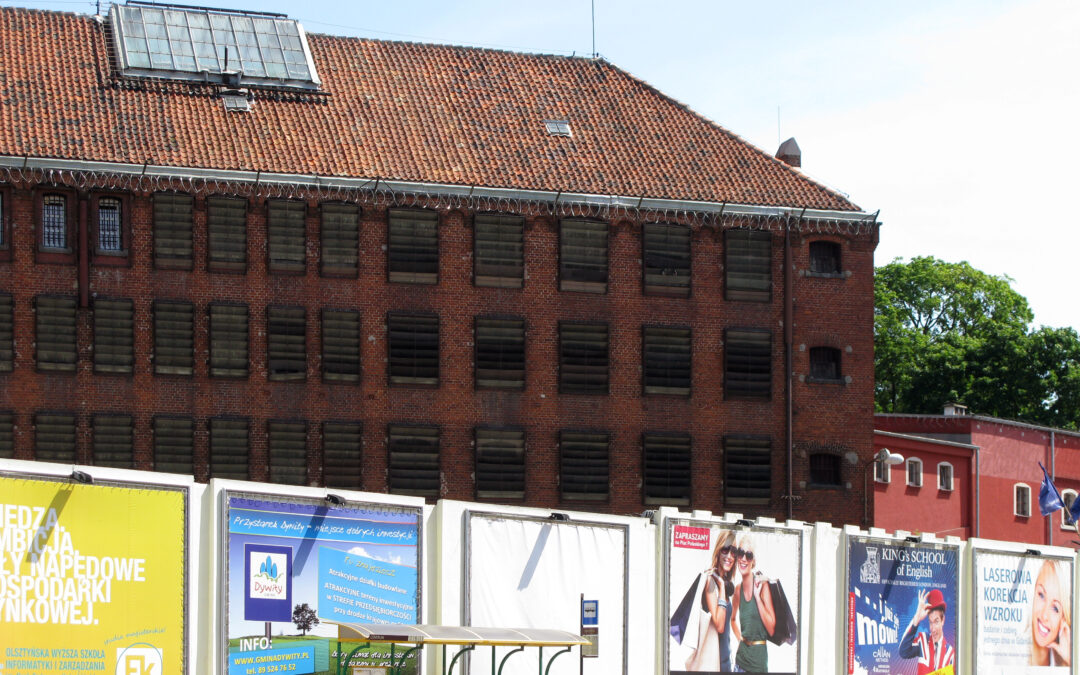The number of pretrial detentions in Poland has risen significantly since the current government came to power, despite overall crime numbers having fallen over that period.
Some legal experts warn that the findings – presented in an investigation by broadcaster TVN24 – point to the politicisation of Poland’s justice system. But the prosecutor’s office argues that they are the result of an effective crackdown on crimes such as tax evasion.
Source: Helsińska Fundacja Praw Człowieka, 2019 report
According to police data, the annual number of crimes in Poland has dropped by over a third since 2005.
“There are significant drops…especially in categories which are very burdensome for citizens, such as burglary, car theft, battery,” says police spokesman Mariusz Ciarka, quoted by TVN24.
Until 2015, the number of pretrial detentions – a preventive measure that is a prerogative of Polish courts since 1997 – had also been in decline. But since that year, when a government led by the conservative Law and Justice (PiS) party came to power, there has been a sharp reversal of that trend.
Pretrial detention is meant to be implemented only as a final resort, after exhausting all other preventive methods to secure the fairness and efficiency of a trial, such as police supervision, cash bonds or a ban on leaving the country.
Yet, over the past four years the number of people in pretrial detention has doubled from a low of 4,162 at the end of 2015 to 8,617 in October 2019, according to a report by Court Watch Polska, a foundation that monitors the Polish judicial system.
Source: Helsińska Fundacja Praw Człowieka, 2019 report
What appears to be driving the rise in temporary detentions is a greater number of prosecutors’ requests for them, rather than a higher ratio of court approvals, which has remained at around 90% in recent years.
In 2019, prosecutors filed for 22,000 pretrial detentions, reports TVN24, compared to 13,665 such requests in 2015.
The National Prosecutor’s Office ascribes this change to the fact that it has gone to “war against economic crimes, in particular the VAT mafia“, as well as taking a tougher approach to tackling designer drugs, reports TVN24.
However, Court Watch point out that, while they “encountered drug crimes quite often” in the sample of hundreds of pretrial detentions they analysed, they found only one case relating to an alleged economic crime.
Instead, Court Watch’s experts believe that growth in detentions results from greater political pressure to show the effectiveness of the judicial system following the radical and contested changes implemented by PiS, including fusing the officers of the justice minister and prosecutor general in 2016
“From the perspective of a politician, a detention may be treated a bit like immediate justice. As something that will allow obtaining a quick effect, to show the effectiveness of the state, to hold a press conference,” says Dominik Zając, a legal scholar at the Jagiellonian University and co-author of Court Watch’s report on this issue.
Zając explains how this works in practice: “[The authorities] disclose at 6 am that a criminal has been detained; at 10am, that the application for detention has been submitted; and 24 hours later we have information that the court approved the detention, which may give the appearance of a certain victory of the state.”
However, the use of the prosecutorial system and courts in this manner is “may not be entirely consistent with constitutional standards”, Zając tells TVN24.
The prevalence of pretrial detentions recently attracted wider attention after a court accepted a request from prosecutors to detain an LGBT activist accused of vandalism and assault to be held for two months before trial. However, an appeals court later overturned the ruling and she was released.
In a recent interview for Notes from Poland, Adam Bodnar, the outgoing human rights commissioner, criticised the detention of Margot, citing it as an example of the wider “abuse and excessive application of provisional detention in Poland”.
Earlier this month Bodnar appealed to Poland’s prime minister to introduce a limit on the extension of pretrial detentions. There is currently no upper limit on the length of time that someone can be detained without trial.
Main image credit: Janusz Sliwinski/Flickr (under CC BY-NC-ND 2.0)

Maria Wilczek is deputy editor of Notes from Poland. She is a regular writer for The Times, The Economist and Al Jazeera English, and has also featured in Foreign Policy, Politico Europe, The Spectator and Gazeta Wyborcza.




















